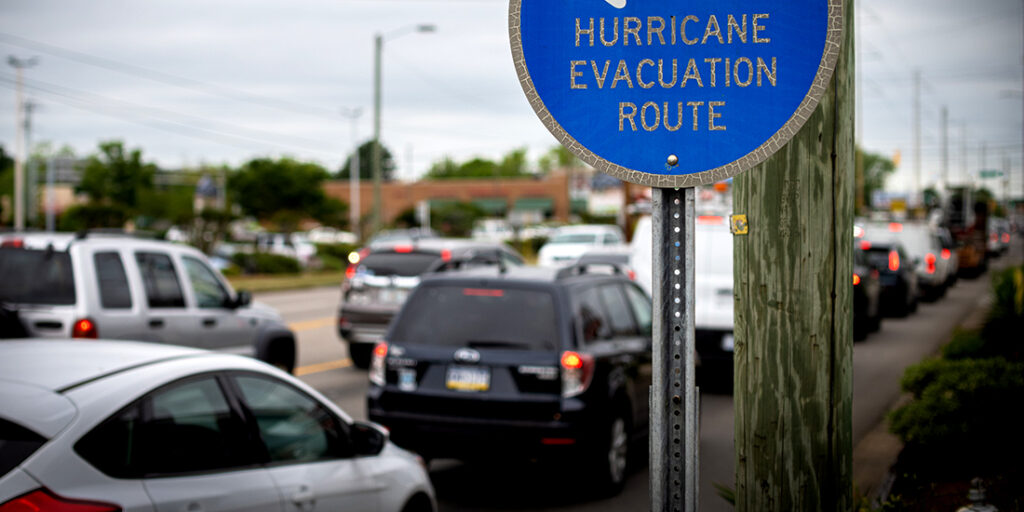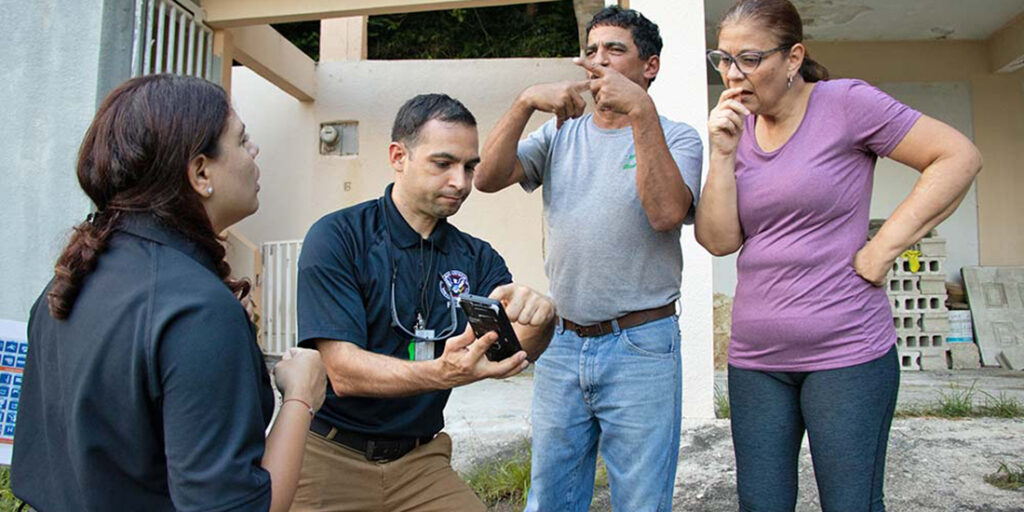HOSPITALS

Overcoming Hurricane Evacuation Delays to Save Lives
- Judy Kruger
Flooding is the main cause of hurricane deaths in the U.S., and evacuation planning is critical to life safety. For maximum community buy-in, emergency managers should educate the public on optimum evacuation procedures and account for supply chain disruptions.
Most Recent

Mitigating Emerging and Re-Emerging Public Health Threats
Raphael M. Barishansky
July 9, 2025
Preparedness is not a luxury—it is essential for global health security. Emerging diseases, antimicrobial resistance, and re-emerging threats like measles and polio demand coordinated, sustained action. Strengthening health systems and embedding preparedness into public health efforts will better protect lives and livelihoods.

Understanding Service Dogs: What First Responders Need to Know
Susan Cohen
June 4, 2025
Service dogs do far more than guide or retrieve—they are medical equipment, trained to monitor, alert, and even intervene during a health crisis. For first responders, understanding these working dogs can mean the difference between life and death.

Not Lost in Translation: A Multilingual Corps Approach
Diana Sanchez-Vega
May 14, 2025
Disaster survivors and responders often face psychological hazards like acute stress disorder, depression, and post-traumatic stress. These issues are worsened in multilingual communities, where language barriers hinder communication and delay aid. Effectively addressing these challenges goes beyond basic translation or ad hoc interpreting to address the whole community.

A Holistic Strategy for Responders’ Well-Being
Camilo Olivieri
May 7, 2025
First responders and emergency managers face constant, high-pressure stress from trauma, long hours, and critical decisions. This often leads to chronic stress, increasing risks of heart disease, mental health issues, and substance abuse. Their ability to help others depends on prioritizing their own well-being through proactive self-care.
Hospitals Archives
The Current State of the Opioid Crisis & Other Emerging Threats
John Johnson
January 22, 2025
Opioid deaths have surged dramatically since the pandemic. Manufacturers exploit legal loopholes and use precursor chemicals that often evade detection and regulation. These new and
Preparing for the Next Biothreat: Lessons Not to Forget
Christy Anderson
January 15, 2025
In 2024, senior officials from hospitals, healthcare organizations, public health, emergency management, and other responder communities convened at two workshops to share the lessons they
Mission Ready Packages: New Possibilities
Kay C. Goss
January 15, 2025
In 2005, the Superdome in New Orleans served as a mass shelter and accommodated over 25,000 people during Hurricane Katrina. Those accommodations, though, were inadequate,
Growing Foreign Threats to National Security, Part 2: Emergency Management Approaches and Choices
Glen Woodbury
October 30, 2024
This is Part 2 of a two-part article that explores the nation-state threat and its implications for the emergency management community regarding the operations, resilience,
Growing Foreign Threats to National Security, Part 1: Challenges and Considerations
Glen Woodbury
October 23, 2024
Part 1 of a two-part series explores the nation-state threat and its implications for the emergency management community, regarding the operations, resilience, resourcing, strategies, and
National Laboratory Partnerships: Linking Operations and Research
Ryan Eddy and Ann Lesperance
September 25, 2024
The September 11 terrorist attacks in 2001 spurred a pivotal change in the way the U.S. approaches preparedness for threats to the homeland. In recognition
Follow Us
Get Instant Access
Subscribe today to Domestic Preparedness and get real-world insights for safer communities.
HOSPITALS
Most Recent

Elevating Healthcare Emergency Preparedness Exercises with Realistic Patient Simulation
Kathryn Romanchuk and Ben Kobliner
February 19, 2025
Overlooked until disaster strikes, many emergency management departments struggle with personnel and budgetary constraints, yet the demand placed on these

Back to the Basics: Navigating Crisis Leadership
Andrew Pence
February 19, 2025
From historic catastrophes to today’s challenges, crises pose significant public threats. By returning to the basics and prioritizing deliberate preparation,

U.S. Withdrawal from the World Health Organization: Emergency Preparedness Implications
Tanya M. Scherr
February 12, 2025
As the U.S. contemplates withdrawing its membership from the World Health Organization, there are potential impacts on both local and

Nonmedical Concerns for Hospitals in a Mass-Casualty Incident
Joanmarie Verrico Wallster and Michael Prasad
January 22, 2025
Nonmedical concerns such as security and safety, unaccompanied minors, and governmental relations can adversely impact a hospital when responding to
Hospitals Archives
Return on Investments in Public Engagement
June Isaacson Kailes
August 14, 2024
Public engagement and participation involve community members in problem-solving, decision-making, and policy development. This article shares some new practices for creating actionable opportunities for key
Bridging Preparedness: State Medication Reserves for Pandemics and Beyond
Angie Im
August 14, 2024
New human cases of highly pathogenic avian influenza have been confirmed in the United States. Although most cases like this do not escalate to pandemic
Lessons in Social Media: Preparing Kids and Community Leaders for Disasters
Patricia Frost and Michael Prasad
August 7, 2024
Addressing children’s needs during a crisis can be challenging. Leveraging social media to create crisis communication campaigns can be an effective way to boost community
The Key Bridge Collapse – Through the Lens of Community Lifelines
Michael Prasad
July 17, 2024
The eight major elements of Community Lifelines use traffic-light-type color-coding to categorize the adverse impact status of a disaster. The article’s author has applied this
Five Key Domains of Incident Management
Aaron Clark-Ginsberg
July 10, 2024
Effective incident management is a set of activities, not policy box-ticking of doctrine that may or may not be followed. A new free toolkit based
Jane Doe – Responding to Vulnerable Patients
Catherine L. Feinman
June 26, 2024
Despite the prevalence of first responders encountering human trafficking victims, they are not always aware of the signs or proper handling of the situation to
Follow Us
Get Instant Access
Subscribe today to Domestic Preparedness and get real-world insights for safer communities.

